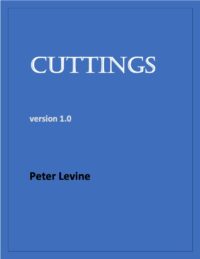- Facebook66
- Twitter2
- Total 68
Translating (or even privately reading) modern free verse in a language that has many cognates and grammatical similarities to English is partly a matter of choosing an English match for each word in the original and stringing those words together. You must accept the inevitable distortions, because the sounds and senses of the two languages cannot match perfectly. The original may also present larger choices.
This is an early Lorca poem about the city where we’re living for three months. The Darro River is 800 meters from the house that we’ve rented and is about one meter wide.
“The Guadalquivir River” A little ballad of three rivers for Salvator Quintero By Federico Garcia Lorca The Guadalquivir River goes between oranges and olives. The two rivers of Granada Come down from snow to wheat. Ah, love, gone and not come back! The Guadalquivir River Has garnet stubble. The two rivers of Granada one weeping and the other blood Ah, love off in the air! For sailing ships, Seville has a road; In the water of Granada Sighs alone could paddle. Ah, love, Gone and not come back! Guadalquivir, high tower And wind in the orange groves. Dauro and Genil, little towers dead over the ponds Ah, love Off in the air! Who will say that the water carries A will-of-the wisp of cries! Ah, love, Gone and not come back! Carry orange blossom, carry olives, Andalusia, to your seas. Ah, love Off in the air!
The Spanish text is here. For the refrains, Lorca uses relative clauses that begin with “que,” starting with: “Ay, amor / que se fue y no vino …” That could mean a love who or a love that. Spanish permits this ambiguity, which might have been especially attractive for Lorca, for whom a “who” would have been a man. Like Rolfe Humphries, who translated this poem for Poetry, I opted for a past participle, to retain the ambiguity.
I chose “sighs alone could paddle” for “sólo reman los suspiros,” partly because I liked the echo of paddle and stubble, and partly because the English monosyllable “row” is too easily misread as a noun.
Humphries must have found the literal meaning of the following verse confusing or unconvincing:
Guadalquivir, alta torre y viento en los naranjales. Dauro y Genil, torrecillas muertas sobre los estanques
How can small rivers be “little towers” or “turrets,” and what does it mean for turrets to be dead over ponds? Humphries loosely offers:
Guadalquivir, high tower, Wind among orange blossoms, Darro and Genil, lowly And dead among the marshes.
I like Humphries’ verse better than my translation, but I am not sure his conveys Lorca.
By the way, I love that the Guadalquivir is just the Wadi al-Kabir, the Big River, transliterated into Spanish.
